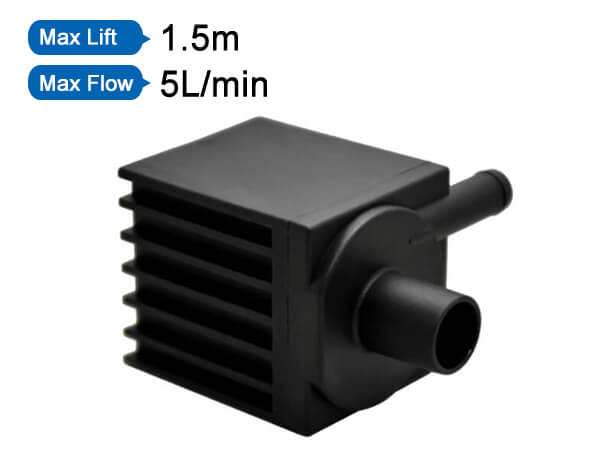Comparison of Energy Efficiency Grades between Silent Water Pumps and Traditional Water Pumps
Published:2024-10-09
What Determines Water Pump Energy Efficiency?
When comparing the energy efficiency level of silent water pumps with that of water pumps, we first need to understand how the energy efficiency level of water pumps is defined. The energy efficiency level of the water pump is divided into three levels: level 1, level 2, and level 3, with level 1 being the highest energy efficiency level, representing the best performance of the water pump in terms of energy conservation. Energy efficiency rating is a standard for measuring the efficiency of a water pump in converting electrical energy into mechanical energy. According to GB 19762-2020 standards, it is generally applicable to various centrifugal pumps with a rated power range of 0.75kW to 315kW. So this energy efficiency level is planned for large centrifugal water pumps.

How Silent Water Pumps Achieve Grade 1 Energy Efficiency
Shenpeng’s silent pumps integrate three breakthrough technologies:
1. Variable Frequency Drive (VFD) Motors: Adjusts speed to actual demand, reducing energy waste by up to 30% .
2. Precision Hydraulic Design: Patented impeller geometry minimizes turbulence, boosting efficiency to 92% (industry average: 85%).
3. Noise-Absorbing Materials: Multi-layer polymer casing reduces operational noise to <40 dB – ideal for hospitals and residential areas.
Silent vs Traditional Pumps:Comparison of energy consumption
In terms of energy efficiency level, silent water pumps are usually comparable to traditional water pumps. Due to their use of high-efficiency motors and optimized structural design, silent water pumps can significantly reduce energy consumption and improve energy utilization efficiency under the same operating conditions. In contrast, traditional water pumps often perform poorly in terms of energy efficiency, with higher energy consumption and limited energy-saving performance.
Where to Use Silent Water Pumps?
The application scenarios of silent water pumps are more extensive. Due to its low noise and high energy efficiency, silent water pumps are particularly suitable for occasions with strict requirements for noise and energy consumption, such as hospitals, libraries, laboratories, homes, etc. Traditional water pumps are more commonly used in industrial and commercial fields that do not require high noise and energy efficiency.
Overall, silent water pumps can provide a quieter operating environment while achieving the same energy efficiency level as traditional water pumps, and even better in some cases. With the advancement of technology and the increasing awareness of environmental protection, silent water pumps will be more popular in the market due to their high efficiency and environmental friendliness.
- Distribution in Water Heater Mattresses: Why BLDC Pumps Ensure Uniform Heating
- How BLDC Pumps Ensure Precise Flow in Water Dispensers
- Why BLDC Pumps Are Essential for Smart Toilets
- The Critical Role of Automotive Electronic Water Pumps in New Energy Vehicle Battery Thermal Management
- Noise Control Technology for Smart Toilet Water Pumps: Enhancing Quiet Operation in Modern Bathrooms
- Unveiling the Working Principle of Automotive Electronic Water Valves
- Comparative Analysis of Liquid-Cooled Pumps vs. Air-Cooled Systems for EV Charging Stations
- Technical Application of Brushless DC Motors in Energy Storage Circulation Pumps
- Water Heater Pump: Efficiency Upgrade for Low-Voltage Systems
- How Dishwasher Water Pumps Enhance Cleaning Coverage Through Stable Operation?
